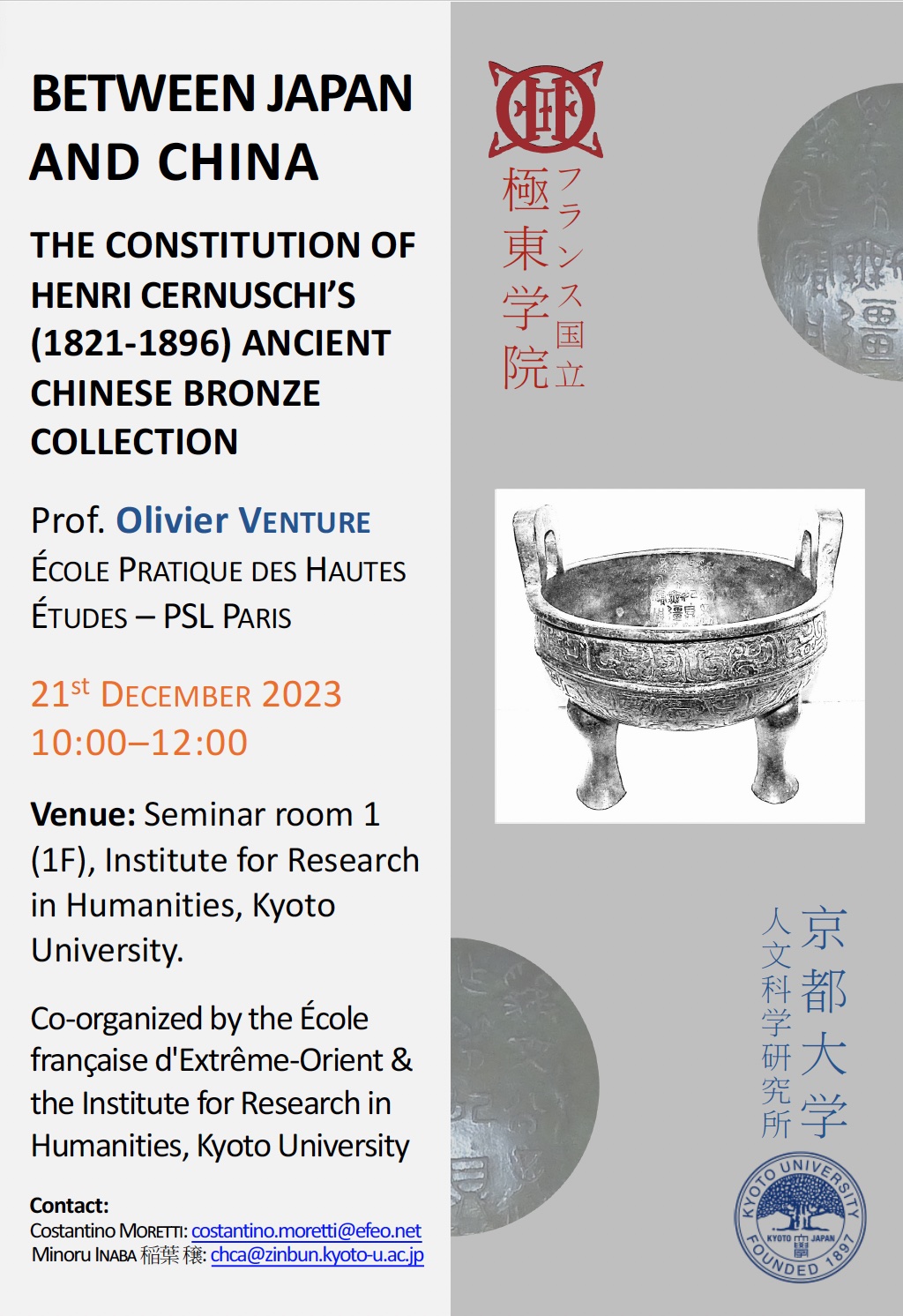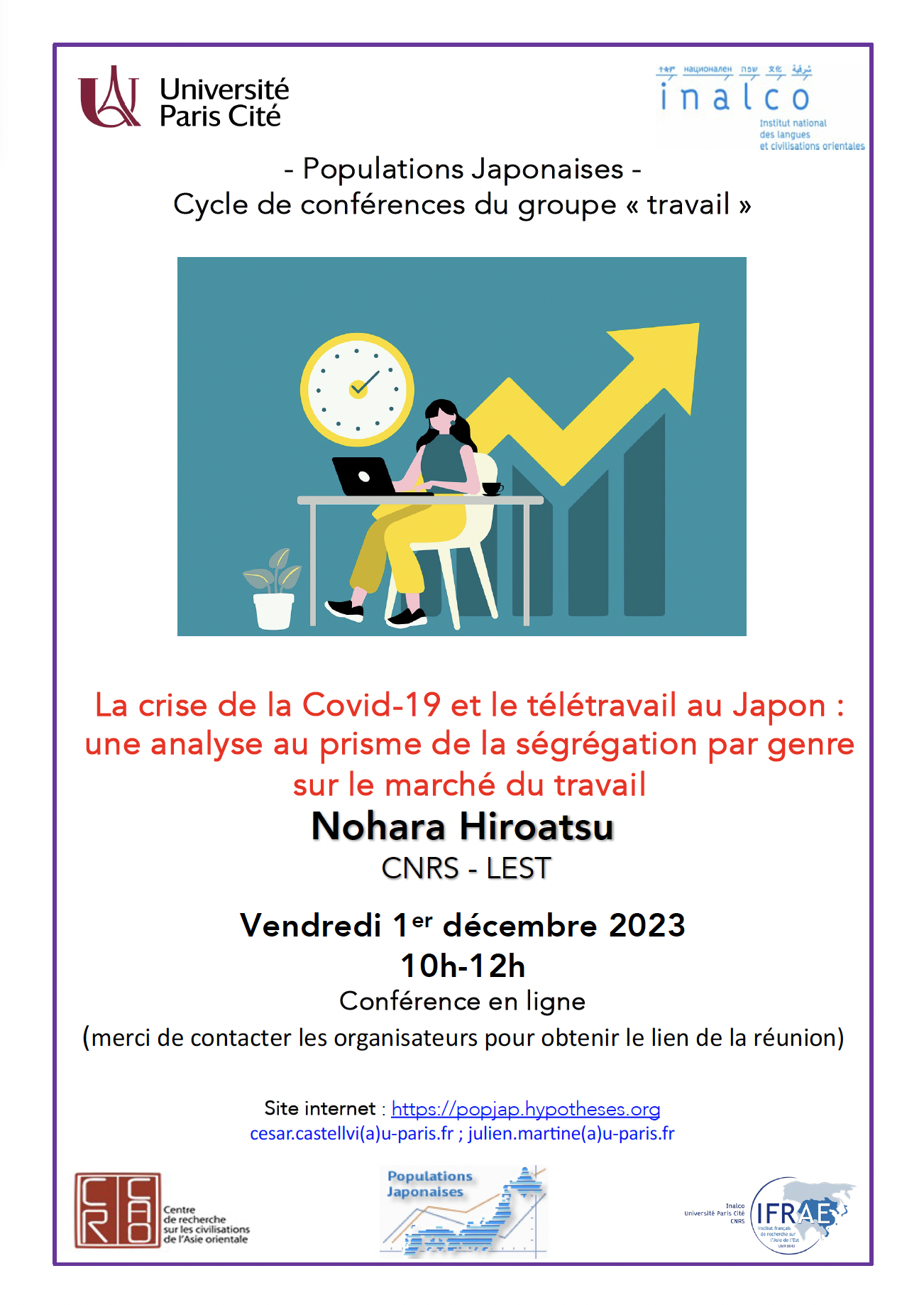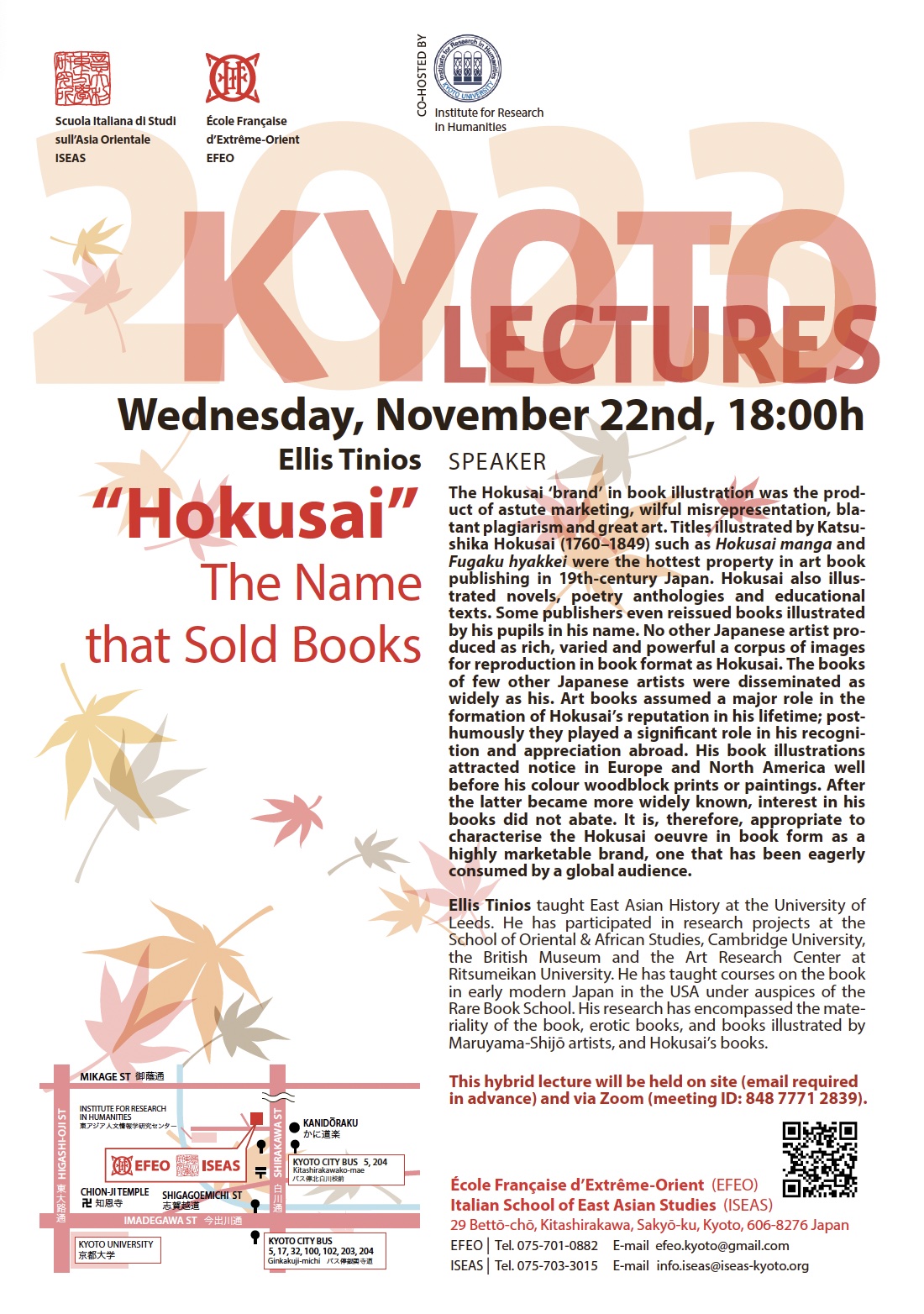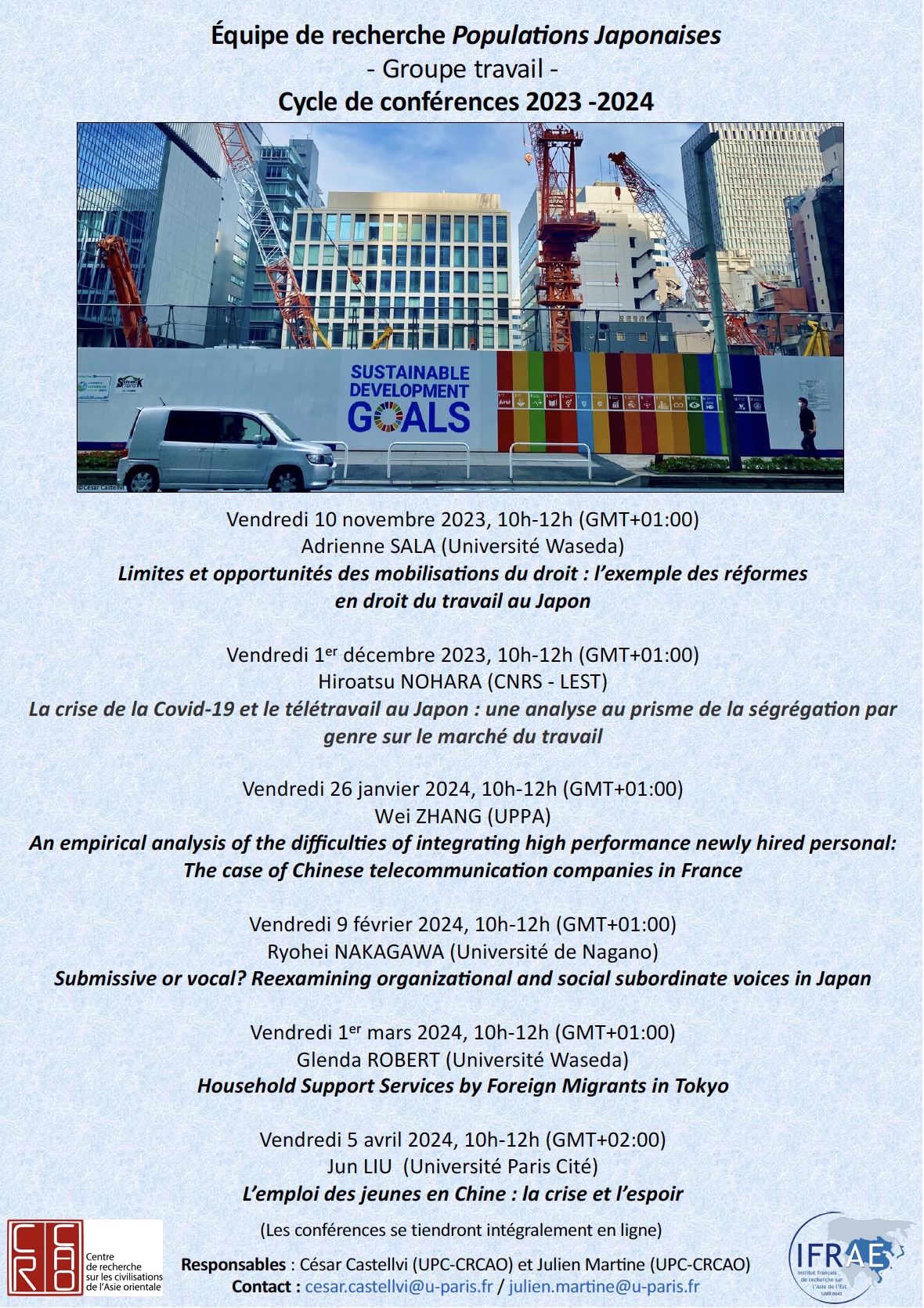La série de conférences Current Research on East Asia 2023-2024 organisée par l’École universitaire de recherche en études sur l’Asie orientale d’Université Paris Cité aura lieu un jeudi par mois à partir d’octobre, de 17h à 18h30 en salle Léon Vandermeersch (481C, 4e étage, bâtiment C des Grands Moulins, 5 rue Thomas Mann, 75013, Paris) et en visioconférence.
Pour nous rejoindre sur Zoom :
https://u-paris.zoom.us/j/85096166643?pwd=VlZUQmtGbXNlSmFWaVVtSVZwTi9BZz09
ID de réunion : 850 9616 6643
Code secret : 591397
Programme 2023/2024
12 octobre 2023
Noga Ganany (University of Cambridge), “Literature and Religion in Late Imperial China”
9 novembre 2023
Sharalyn Orbaugh (University of British Columbia), “Testimony vs. Propaganda: Love and Kamishibai in Japan’s Colonial Empire”
7 décembre 2023
Holly Stephens (University of Edinburgh), “The Programme to Improve Rice Production in Colonial Korea: Inspections, Regulations, and the Creation of a Commodity”
25 janvier 2024
Juliane Noth (Freie Universität Berlin), “To Rebel is Justified: Red Guard Art and the Mass Production of Images”
15 février 2024
Barak Kushner (University of Cambridge), “East Asia’s Postwar Battle over History and Memory – the Hidden Legacy of War Crimes Tribunals”
7 mars 2024
Nguyen Minh (Bielefeld University), “Transnational Mobility, Kinship and Aspiration for the Good Life in Rural Central Vietnam”
4 avril 2024
An Jong-Chol (Ca’ Foscari University of Venice), “Gender Equality or Traditional Culture: Legal Cases Afterwards the Abolishment of the Household Head System in Korea”
25 avril 2024
Sarah Turner (McGill University), “Slow forms of infrastructural violence: the complexities of Vietnamese state plans and ethnic minority livelihoods in Vietnam’s mountainous northern borderlands”
Pour plus d’informations : https://u-paris.fr/lcao/cycle-de-conferences-current-research-on-east-asia/




